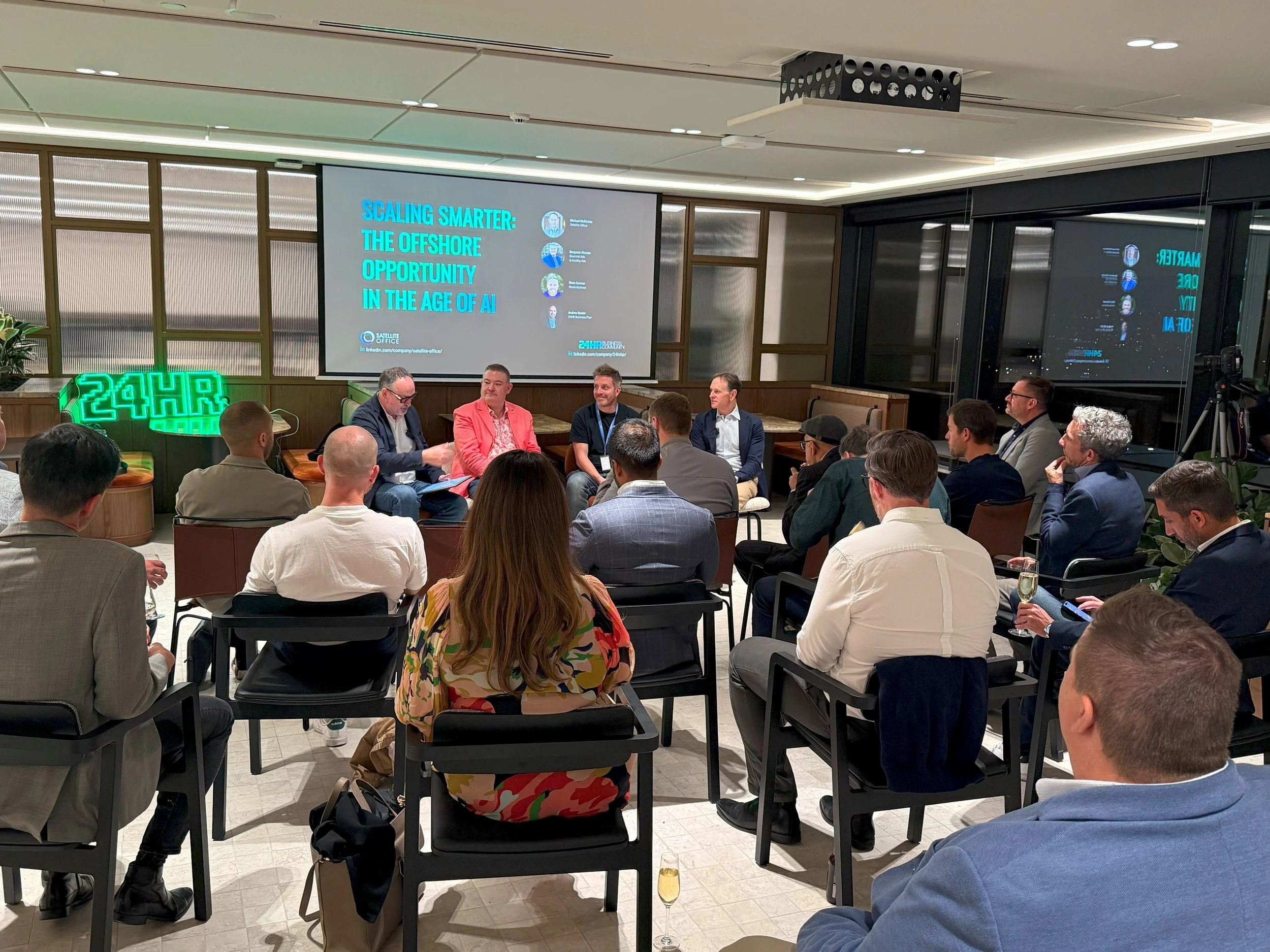Unlocking Growth Through Offshoring and Talent Related AI Initiatives
For many, offshoring still conjures up images of low-cost call centres and entry-level roles. Artificial intelligence, meanwhile, is often imagined as a one-size-fits-all fix for business inefficiencies. The latest 24HR Business Community panel brought together industry voices to challenge those ideas - and to show how these two forces are reshaping the future of work.
Key Takeaways
Offshoring is about more than cost-cutting — it can elevate talent and expand global capacity.
Legal risks can be managed by partnering with providers who employ staff locally.
Talent related AI initiatives deliver results when supported by training, trust, and cultural readiness.
Relationships and cultural sensitivity are as important as strategy in building sustainable offshore partnerships.
Andrew Baxter, Benjamin Christie, Chris Carman, Michael McRitchie
Beyond Cost-Cutting
Offshoring is no longer just a financial lever. And it’s not just for entry-level roles. The quality of offshore tertiary level talent is high. And that’s why companies of every size are using offshore teams to bring in the skills they need.
Offshoring enables some organisations to run near-24-hour operations by blending onshore and offshore teams. And it can result in strengthening resilience and responsiveness. For many it’s a wise investment to compliment their business operations.
Making It Work Legally and Culturally
Of course, sending work offshore isn’t without complexity. Businesses can face legal risks when they employ staff directly overseas. But there are third party Australian companies who can help businesses navigate this challenge by hiring through their Philippine entities, ensuring compliance with local laws and reducing client liability.
Cultural connection is equally as important. For example, family values shape Filipino workplace culture, and it is just as important to build in person connections with offshore teams there, as it is with onshore teams. Spending time with staff and getting to know them are what transforms offshore staff from service providers into true partners.
AI: A Work in Progress
Talent related artificial intelligence initiatives bring a mix of enthusiasm and caution. Quick wins can be found, but other initiatives can lead to underwhelming results.
You need to be clear around the problem that AI can solve. For example, to improve customer service response times, or speed up recruitment timelines. The data says that offshore markets are adapting to AI quicker than their Australian counterparts, partly due to a broader issue: Australia’s hesitance to adopt AI, rooted in trust and training.
The consensus was that AI’s promise is real - but success comes when staff are equipped and supported to use it, not when it’s imposed as a quick fix.
Growth for Both Sides
A common worry with offshoring is that jobs simply shift offshore at the expense of local staff. But adopters of offshoring argue that building offshore teams often drives growth in both places. This is because those businesses see offshore hires as a way to complement local teams rather than replace them.
When looking at offshoring a role, businesses should stop chasing the cheapest options and instead focus on hiring the best person for any given role, regardless of location.
Looking Ahead
Companies successfully offshoring have found a sense of balance. Done well, it is about talent, culture, and connection, not just lower costs. Talent related AI, meanwhile, is powerful but only when humans are trained and trusted to use it.
As global workforces continue to evolve, the companies that thrive will be those that treat these tools not as shortcuts but as opportunities to grow stronger — onshore and offshore, human and digital, side by side.
This article was written from a September 2025 panel discussion on Offshoring and Talent related AI, as part of the 24HR Business Community series of events.

